If you need a website, you may have seen some of the ClickFunnels features and wondered what is the best option for today’s web-driven world.
While the days of having a custom website are far from gone, sometimes you only need a sales page to sell your products.
But before we get into ClicFunnels vs Website, why don’t you just get a free trial of ClickFunnels and see what it can do firsthand?

Here is exactly why you should sign up for a ClickFunnels free trial right now:
Pros
- Everything is done for you, no technical knowledge required
- Saves you time and money
- Funnelflix has plenty of training to make sure you succeed
- Plenty of built in templates
- Crazy bonuses you can get below
Cons
- Support can be slow at times
If you were wondering, is ClickFunnels worth it?
The answer is YES.
But don’t just take my word for it, Click here to sign up now and get access to all the bonuses ClickFunnels has to offer!
ClickFunnels is a reliable software that allows you to create landing pages, sales pages and sales funnels all through one easy to use dashboard.
You can literally get started in one evening and have your sales funnel up and running within a few hours.
If you’re a beginner, it still might look complicated at first glance but trust us when we say that after trying out ClickFunnels for a few days, it will be easy for you to learn the ropes of this tool.
ClickFunnels also has lots of training courses that are included when you sign up that we will touch over later in this Clickfunnels Review.
If you’re still not convinced, then read on our review to see if ClickFunnels is the right choice for you.
In this post, ill share my experience and show you all the features of both platforms, what is the best for you to build websites, or maybe even your first funnel.
I’ll also show you how you can get some high-converting sales funnels that you can try for yourself to see if ClickFunnels is right for you.
What Is Clickfunnels?

Designed in 2014 by Russell Brunson, Clickfunnels is an application used for website and sales funnel creation.
Basically, it is designed to help entrepreneurs with little or no tech knowledge build web pages specifically for sales.
Starting with the landing page, features a 7-phase step-by-step approach that is expected to walk an audience through a business’ value offer.
At its core, a sales funnel is designed with the intent of lead generation and conversion. With Clickfunnels, businesses can now easily automate their entire sales process with limited tech costs.
Clickfunnels Pros
- Used by many successful companies
- Multiple ready-to-use funnels
- Simple and easy-to-use Webpage Editor (No web developer needed)
- Time efficient- quickly builds sales funnels that sell!
- Automated shopping features e.g. shopping Cart With single Click Upsells
- Effective lead generation
- Automatic follow-up Funnels
- Smart workspace clear organization in a simple dashboard
- Easy check-out process for your customers.
- Create a pre-frame bridge page
- Offers newbies special affordable Webclass Training
- Awesome Webinar Event Pages
- Free and easy customer follow-up feature.
- Highly flexible- can launch multiple pages with speed.
- Low learning curve- can be used with little or no web design skills
Clickfunnel Cons
- Limited customization options
- No domain name; uses shared server (you can add your own domain after)
- Limited opportunity for E-mail marketing.
- Expensive for starters
- Ineffective search engine optimization.
- Inadequate for generating organic traffic.
What is a Website?
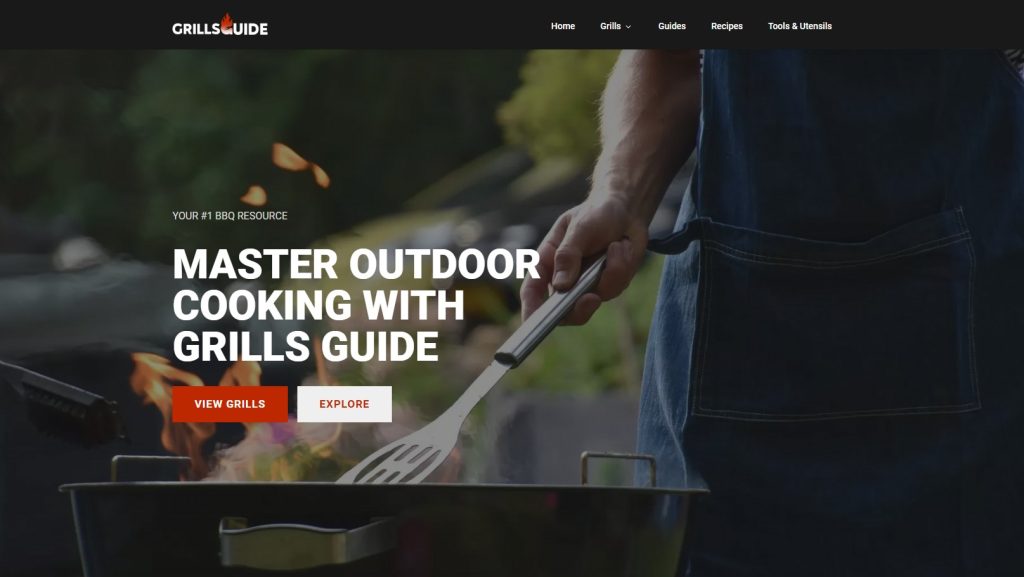
A website is a collection of web pages under a domain name. It can be designed by developers using coding languages such as HTML/PHP/Java etc. or through a CMS (Content Management System) such as WordPress, Hubspot, Joomla, etc.
For businesses, websites serve as online offices. It is the platform through which you introduce your brand, products, and services.
Just like a physical supermarket, businesses put a lot of effort into organizing and dressing up other pages to appeal to prospective customers.
A traditional website contains clear navigation and pointers to direct visitors to buy a product or service. Hence, websites thrive on visits.
Website Pros
- Effective for search engine optimization and marketing
- Cheaper upfront cost with hosting
- Vast customization options
- Highly compatible with other tools
- Customizable structure
- More market research possibilities
Website Cons
- Creating a custom web page is expensive
- High maintenance cost
- No free trials
- Complex processes
- Highly time-consuming
- Higher learning curve
- Requires a high level of tech skills such as web or graphic design experience.
Differences between Websites and Clickfunnels
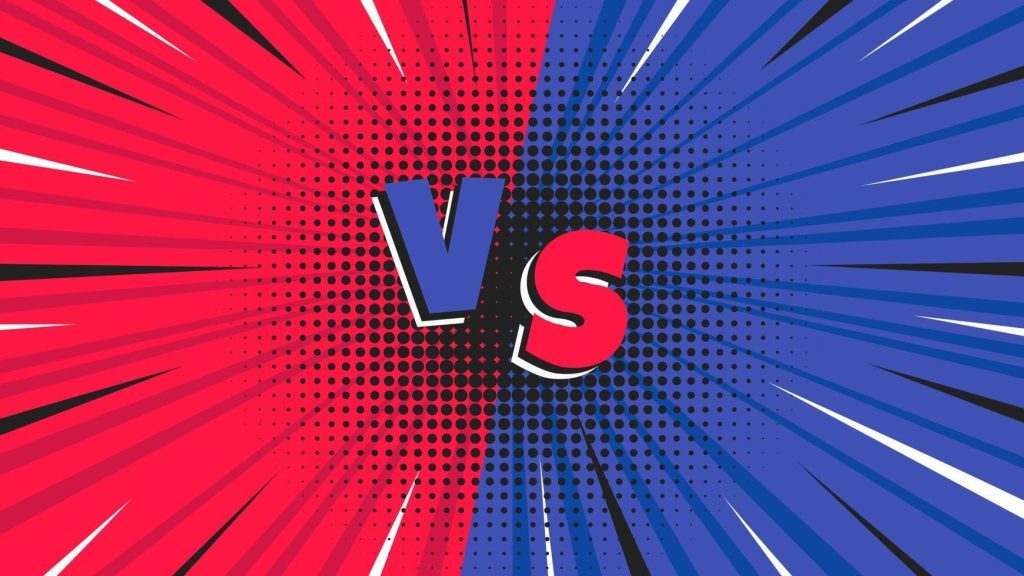
While there are benefits to both the worlds, here are the major differences between Clickfunnels vs Website.
Simplicity
Obtaining, setting up, and maintaining your own website requires the services of several techies. From website builders, and developers, to graphic designers among others.
This involves a long process that can be time-consuming. Another key consideration is the cost involved in these processes. As an entrepreneur, acquiring all the skills required to handle your business’ website on your own is absolutely impossible.
ClickFunnels, on the other hand, are however much easier to run and they require less technological expertise.
You can acquire, edit and publish your funnels all by yourself or at best with little help.
This is because Clickfunnels offers readymade templates that can be customized to suit what the business owner needs.
It also has an easy ready to use interface that can be operated by anyone. These systems have been tested over time by several businesses and individuals and have been proven to be effective in lead generation and conversion.
Although some businesses require special website features and may necessarily require the use of a website (membership websites for example can be built in Clickfunnels).
Domain
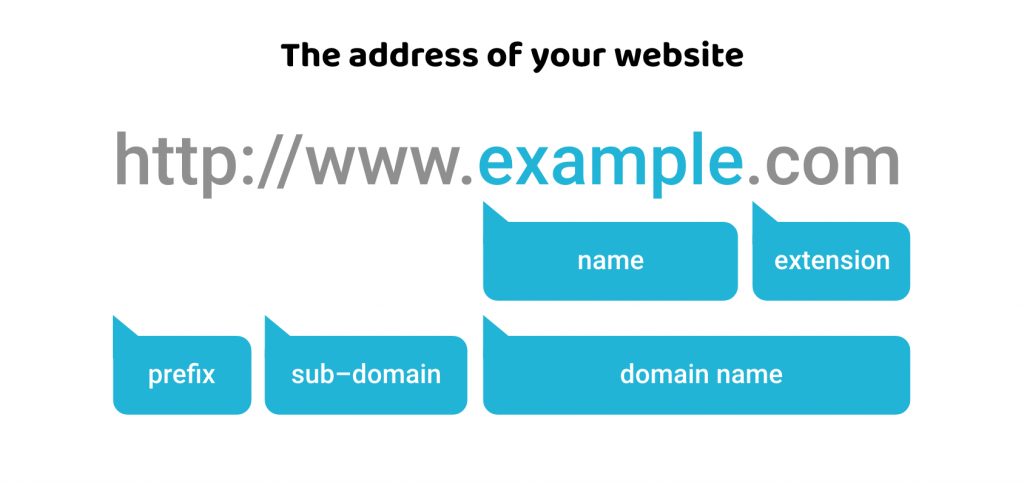
One of the most essential features of a traditional website is the domain. It is the first thing acquired in the setting up of a website. It is acquired once and renewed yearly for as long as you desire.
Oftentimes the domain name is the business’ brand name or association name. It is very important as this is the first thing a customer searches for when finding out about your business, product, or service.
A good domain name offers several key benefits to a business’s online presence. A domain name;
- Gives you professional credibility: Carves a niche for you and singles you out of the web crowd.
- Ensures brand visibility: it is your online signpost
- Improves ranking on search engines: with consistent effective SEO content, you soon get recognized as an online market leader in your industry.
- Provides global presence: anyone from around the world can see you. etc
Unfortunately with Clickfunnels, you tend to miss out on most of these benefits as you do not get a direct domain name.
You still have the option of making your Clickfunnels pages show up in your website domain e.g. www.myclothingstore.com/myclickfunnelpage. However, this option offers limited chances to optimize the page for search engine marketing.
Pricing/Costs
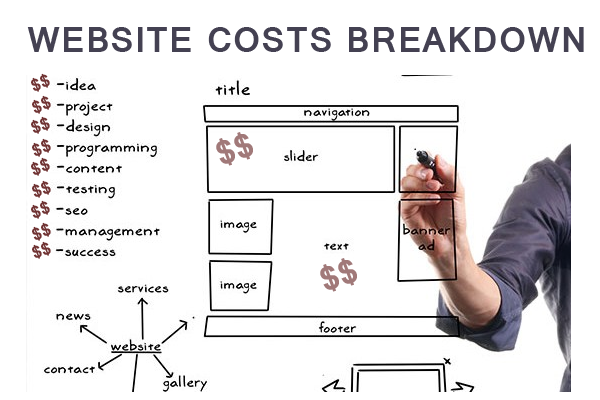
On average, a website at the initial stage costs much less than a sales funnel on Clickfunnels. The price of an ideal website ranges from $200 to $6000 in upfront costs.
However, the costs of maintaining a website continue even after creating one. Most websites require an ongoing cost of about $50 to $500 per month for maintenance.
In addition to this, you would need to hire a designer or developer who would also charge an upfront cost of about $5000 and an ongoing charge of about $1000.
These prices are not fixed as they can be more or less depending on several circumstances.
Clickfunnels on the other hand incur a relatively higher upfront cost but minimal maintenance charge. Clickfunnels often change their prices but currently, there are two different payment plans.
Currently, the lowest ClickFunnels payment plan is $97 a month. This plan affords you access to every funnel creation tool but is limited to 20 funnels, 100 pages, and 20,000 visitors only. If you are running a small or medium business, this plan is sufficient for you.
Landing pages
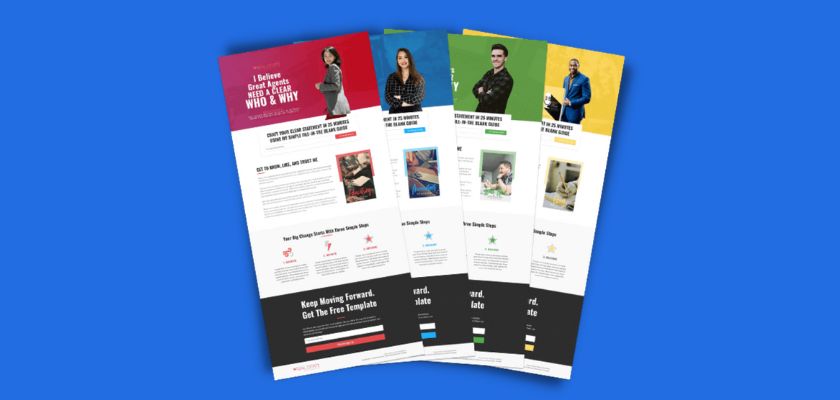
Another major difference between Websites and Clickfunnels is the use of a sales funnel page. A sales funnel page is an independent web page, designed specifically for an online advertising or marketing campaign.
These have been used by online stores in the sales industry for the past 20 years or so now.
A landing page is intended to serve a single goal which is the call to action (CTA).
This makes it effective in generating leads and increasing conversion rates. An effective landing page:
- Establishes a good first impression
- Generate leads and high conversions
- Help promote new products and services.
- Establishes credibility
- Increase traffic
Clickfunnels makes use of effective pages that improves lead generation.
Unlike web pages, which are typically designed to serve many purposes and allow visitors to wander,pages are specifically designed with a single focus; sales generation.
A website often features different sections, presenting different information. Most websites have an about section, a contact page, a products page, a separate blog page, etc.
Faced with so much information, a website user is like someone shopping in a supermarket where the sections are unlabelled, you would definitely have a hard time finding the products you want.
However, with Clickfunnels landing pages, everything on the page is tailored to help you make a purchase decision.
While a business website may present all the information the owner is willing to put out, a Clickfunnels landing page only says enough to ensure conversion.
Sales funnels

A sales funnel is a step-by-step strategic process that models the buying journey of customers, from their first contact with your brand till they become loyal customers.
It is a commonly used concept by entrepreneurs both in digital and offline marketing.
There have been different approaches and explanations to the marketing funnels concept, but peculiar to this article is the Clickfunnels Sales funnels.
According to a publication on the Clickfunnels website; “sales funnel is a marketing strategy designed to turn cold prospects into long-term customers”. ClickFunnels achieves this through five key stages:
- Traffic– attracting prospective customers; meeting them where they are.
- Bait– lead magnet offered at minimal or zero cost; a little giveaway to sustain attention
- Front-end offer- an affordable offer that helps customers solve surface-level problems
- Middle offer (up and down)- a more valuable offer that solves a bigger problem and prepares customers for the ultimate sale.
- Backend offer– the real deal.
Sales pages are the magic deal closer and should be used by all successful businesses that desire maximum sales. What’s more? You don’t have to close the end of your conversion funnels. Clickfunnels does that automatically. It also features an auto-response and direct payment system.
Split Testing
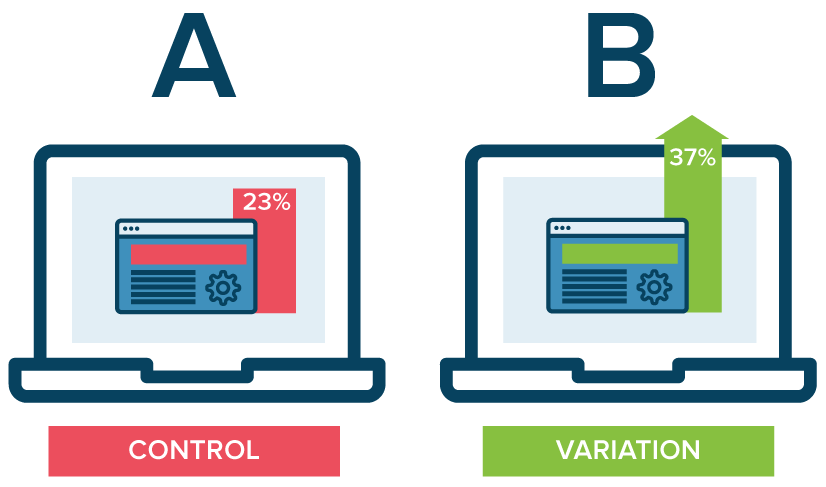
A/B split testing is an essential step in executing an effective online sales strategy.
It entails the creation of two versions of a single page and running test traffic to see which performs. Split testing helps you:
- Improve your content
- Enhance user engagement
- Increase conversion rate
- Reduce bounce rate
While this process is very much possible on websites, as with every other thing it can be very cumbersome.
With Clickfunnels, this process is made extremely easy as it provides clear and precise analytics to help you decide on the most effective page.
Clickfunnels also affords you a lot of clarity as it lets you have the full funnel conversion view at once.
Instant Funnel Replication
Clickfunnels make it easy to effect speedy funnel replication. You can duplicate a page or an entire funnel on ClickFunnels. This instant duplication is not doable on websites.
Also, you can share the funnels with other users by simply clicking a few buttons.
Customizable Funnel Order
If at any point you decide to make some changes to your sales funnel order, you can always effect it on Clickfunnels.
However, this is not possible on a website. Not only will it take a longer process thereby delaying your marketing plan, but it will also require extra costs. ClickFunnels allows you to edit and rearrange the funnel structure speedily and easily.
The advanced user interface on Clickfunnels does the lifting and reshuffling, allowing you to add or delete entire pages.
Clickfunnels Vs Web Pages – which should you choose?
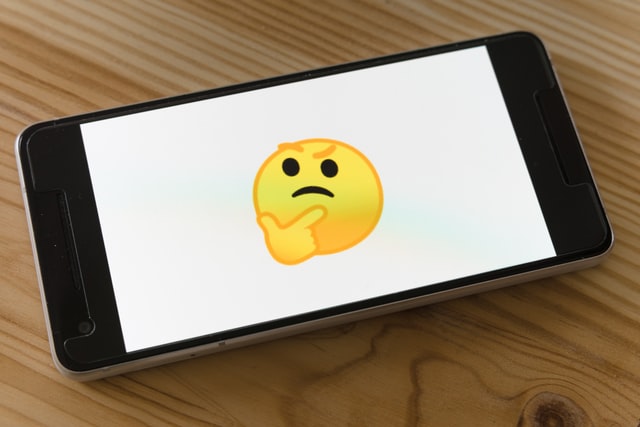
Websites are considered a luxury, especially if your businesses can do without them. Because a normal website doesn’t guide your leads through every page to take a desirable action, it makes you lose many prospective customers.
Clickfunnels disregards the need for a website and allows you to create landing pages that serve as microsites for your target market.
Your prospects are guided to do what you intend, and you can easily convert visitors into returning customers.
However, the ClickFunnels Vs website debate raises a question. Does ClickFunnels mean e-commerce websites are unimportant?
E-commerce websites depend on their websites as a destination for their leads, and where these leads can take the actions they intend, usually a purchase.
Choosing between a website and ClickFunnels depends on certain things, and they include:
If you have an existing website
An existing website, for a product, is the site where you display your products. It also serves as a digital resume. However, you can use ClickFunnels to guide your leads through purchasing on your website.
This is possible as you can choose from the numerous templates to guide leads through the purchase journey, and help them reach the product with ease.
How many products do you have?
For an e-commerce website with different products in different categories, you can still use Clickfunnels with your website.
It begins with a perfectly targeted ad. Your leads are interested in a particular product, and you can use Clickfunnels to direct them to that particular product.
The same process can be used to drive leads to the other products on your e-commerce websites, using Clickfunnels.
The nature of your products
Do you offer a physical product, a service, or a webinar? The nature of your product determines if you should use Clickfunnels or a website.
While a website can be used for all the products or services online you offer, you can keep leads interested, and guide them to your site with Clickfunnels.
So, should Clickfunnels replace websites? Are websites dead?
No, websites are very much alive and essential to your business. However, you should use Clickfunnels to drive more lead conversion from your website.
Do you need a website for sales funnels?
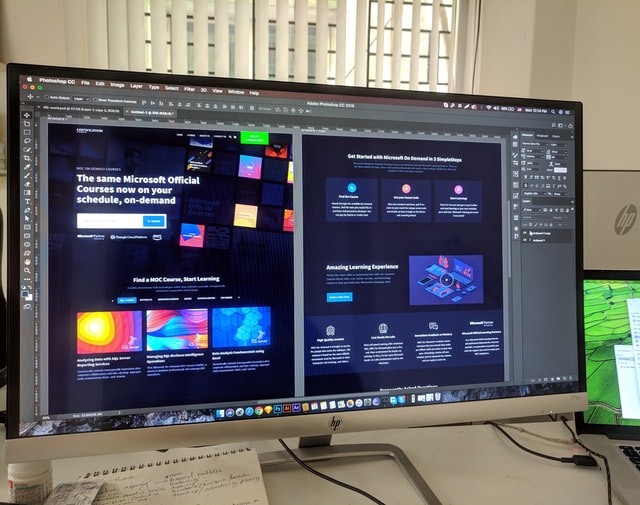
Web sites and sales funnels are the same things. ClickFunnels vs Website, they’re both websites.
While you don’t need a website in the traditional sense, when customers do their own research, they can offer credibility to increase the conversion rate of your funnels.
When landing pages have done their work in the click and sales funnels, your website will be the receiver of genuine traffic that has taken action as dictated by your landing page. A good website helps to complete the effectiveness of a sales funnel.
It improves your lead conversion rate
Prospects that have decided to take action in a sales funnel are generally led to a website where they can complete their desire to satisfy their need or solve their problems.
The easier it is for leads to enter their e mail address to purchase on your website, the more lead conversions you’ll have.
A web page with poor navigation usually experiences a high rate of cart abandonment.
It helps to complete your marketing strategy
The goal of your marketing strategy can range from getting more leads, or making more sales. Whichever it is, to complete your marketing strategy, you’ll need a good lead destination, which is usually a website.
Good site loading speed, great site design, easy site navigation, and great readability, are some of the factors that influence the effect that your website has on the success of your marketing strategy.
Generally, your website should be better than your landing page.
It determines the result of your marketing efforts
Regardless of how much effort you’ve put into advertising and generating leads if your website isn’t good quality or your value ladder isn’t set up correctly, you’ll have a low lead conversion rate.
The real result of a sales funnel is in the rate of conversion of leads to customers.
A good website helps to ensure that your marketing efforts are rewarded with a higher lead conversion rate. While a bad website will convert some leads, its rate will be low, and that may lead to some losses for your business.
It increases your brand’s awareness
While landing pages are great for improving brand awareness, they’re not as effective as your website’s organic traffic.
With the general reduction in the attention span of readers, you can direct traffic to your website’s homepage where snippets about different pages on your website, including your service page, your history, and your values, are displayed.
Clickfunnels vs Website – Final Thoughts
ClickFunnels vs Website, who is the winner?
While they’re not the same, websites are important to help with the success online of converting leads to customers through ClickFunnels.
However, Clickfunnels can improve your lead generation and conversion better than depending on your website alone (especially with outbound traffic).
Most leading online businesses utilize both websites and Clickfunnels for all the basic features as they can sell the highest ticket items via Google Adwords while relying on their website for organic traffic.
If your target audience is more on inbound marketing and drives organic traffic from search engines, then you should start with websites.
Proper content marketing on websites is effective especially to establish brand awareness and professional credibility in your industry.
However, if your goal is to sell products and services and earn maximum profits then you should consider Clickfunnels for starters. This way you can drive paid traffic and make maximum sales.
In the long run, websites will allow you to create content for organic traffic and rank top on search engines while ClickFunnels will help you convert customers and make sales.
ClickFunnels vs Website got you confused? Leave a comment below and I’ll help you out with my expert advice.
I’m an independent ClickFunnels Affiliate, not an employee. I receive referral payments from ClickFunnels. The opinions expressed here are my own and are not official statements of ClickFunnels or its parent company, Etison LLC.

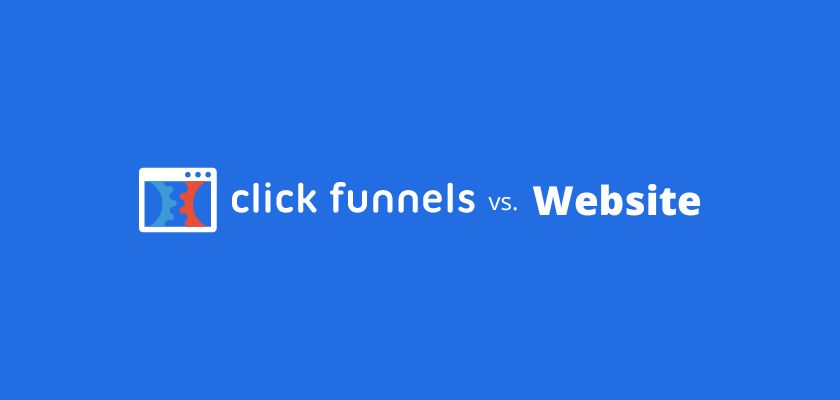


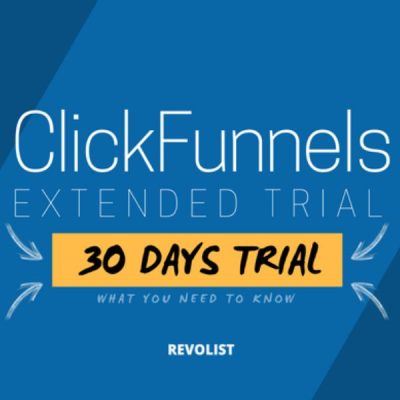
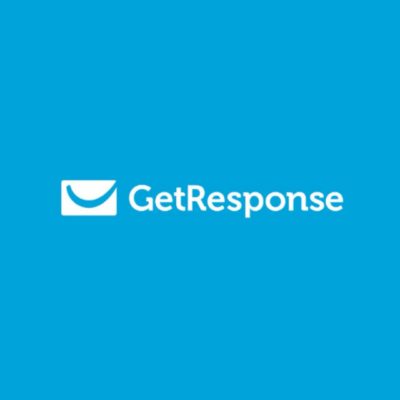
![ClickFunnels For Ecommerce [Grow Your Online Store] ClickFunnels for ecommerce revolist](https://revolist.sg/wp-content/uploads/2023/04/ClickFunnels-for-ecommerce-revolist-400x400.jpg)
![Get A ClickFunnels Demo [Transform Your Business Today!] ClickFunnels Demo Revolist](https://revolist.sg/wp-content/uploads/2023/04/ClickFunnels-Demo-Revolist-400x400.jpg)
No Comment! Be the first one.